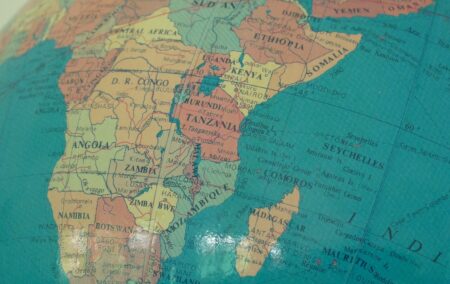While colonialism may explain why Africa was underdeveloped up to the point of independence, it offers an inadequate explanation of why Africa is still poor today. This is especially true, given the experience in Asia of rapid development with countries reducing poverty significantly within a few decades.
In fact, the problem in Africa is that this continent is not a safe place for capital. The African Continental Free Trade Area (AfCFTA) investment protocol seeks to change this, but investors will need a credible mechanism to lodge disputes against host states.
According to the African Development Bank, Africa has an annual infrastructure deficit of between $68-$108 billion per year. This is projected to rise to $170 billion per year by 2025. Given that Africa has a total economic output (nominal GDP) of $3.1 trillion per year, with government budgets largely dedicated to consumption spending which is politically difficult to reduce, the private sector will be required to plug the gap. The problem is that African governments do not have a good history of protecting investors.
Whether through expropriation, nationalisations, damage to investments because of war/rebellions, failure to protect investors against crime, excessive taxation, regulation, inflation, and so on, Africa has earned its reputation as a destroyer of capital. This largely explains the lack of development and therefore poverty.
The AfCFTA treaty indicates a desire to change things, to no longer be the skunk of the world. The fact that governments have put aside their short-term greed in agreeing to eliminate tariffs is a positive step, but the lack of infrastructure for trade is a significant non-tariff barrier.
Investment protocol
The investment protocol of the AfCFTA is an opportunity to change this by allowing investors to build the infrastructure required for trade without facing the risk that African governments will make their investment worthless on a whim. But for this to happen, the protections outlined in the investment protocol must be enforceable in a robust manner. Governments that violate the investment protocol must feel the pain of doing so, and this pain must outweigh the perceived short-term benefit of the violation.
Africa does not have a good history in this regard. Recall the case of the Southern African Development Community (SADC) tribunal, which was dissolved by SADC governments because it ruled against Zimbabwe’s expropriation of land. If political considerations continue to outweigh the interests of investors in the AfCFTA investment protocol, it will be nothing more than nice words on paper that don’t fundamentally change anything. This, in turn, will severely limit the benefits of African free trade.
African governments must realize that to achieve the Agenda2063 goal of developing Africa into a great power with a voice on the world stage, instead of its position as the world’s beggar continent that is always dictated to, they must be willing to change. Meaningful change is often painful, but without it, there can be no growth. What this continent needs more than anything else are institutions that can credibly limit the power of governments and allow the genius of the individual African or the genius of a whole community of Africans to flourish.
The investor-state dispute settlement mechanism of the investment protocol is currently being negotiated as part of an annex to the protocol. The protocol requires an attempt at amicably resolving any dispute first, but once amicable dispute resolution mechanisms are exhausted, the investors should be able to approach an African court that has real teeth when confronting African states. A court with competency for hearing all AfCFTA cases, whether between state parties or between an individual/private party and a state party, should be set up.
Dispute
The dispute settlement annex should then allow appellants from this AfCFTA court to approach the existing African Court on Human and Peoples Rights (ACHPR) in Tanzania and set out the procedure for doing so. Currently, only eight African countries out of the 34 who have ratified the treaty establishing the ACHPR have submitted declarations allowing non-state parties in those countries to take their government to the ACHPR. This will need to be changed by the annex, at least for cases involving investor-state dispute appeals.
Africa does not lack good ideas about how to develop herself. What Africa lacks is institutions that make these ideas into a reality, regardless of the whims of the governments on the continent, and regardless of the politics prevailing in any country at any given time.
Pension funds
To give African investors, including pension funds, the confidence to invest in African infrastructure will require African governments that cannot expropriate without compensation or allow the investor to lose out through government action or neglect. This means empowering institutions like African courts to have power over these governments.
One of the main reasons why South Africa is a preferred investment destination on the continent, despite the corruption and the crime, is the fact that investors know that we have a Constitution that protects them, and that the government cannot violate that Constitution. Our courts can issue judgments against our government if they do, and the government obeys these judgments.
The rest of Africa desperately needs such institutions: institutions that protect the individual/private parties against the state. Once we have set these up, no matter how difficult the geography or the climate, investors will find ways to overcome difficulties and build infrastructure.
Only then will the real African renaissance begin.
The views of the writer are not necessarily the views of the Daily Friend or the IRR.
If you like what you have just read, support the Daily Friend.

